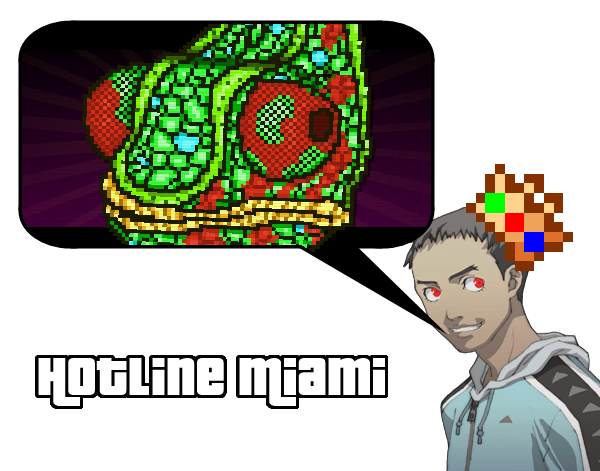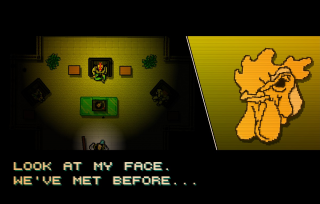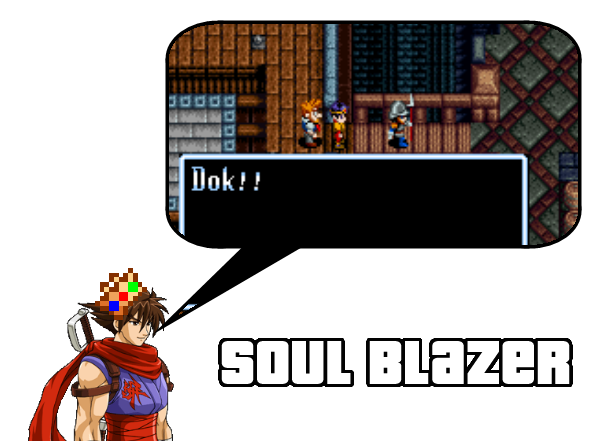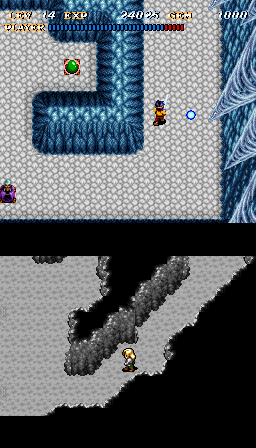Top down hack and eviscerate action.
By Video_Game_King 14 Comments


Anybody ever stop and think about all the violence that's on display in video games? No, I'm not going in that direction with this blog, but this is a thought that definitely keeps popping into my mind whenever I blow somebody else's out. But as gruesome as that video was, it pales in comparison to Hotline Miami. Imagine if Vice City was even more violent and brutal, and you have Hotline Miami. Given my introduction, it's somewhat odd that I liked the game as much as I did.
Maybe it's because the game is so goddamn brutal that I like it as much as I do. I'd describe the overall premise, but all I need to say is Chickenhead. After doing God does not know what because his existence is proof against God, Chickenhead finally returns, and his mere presence should explain everything that is Hotline Miami. At first, you may wonder what's so wrong with something like Chickenhead. Just look at all the bright colors and fun times he's all about. What could possibly go wrong with that? Just wait. In time, all will be made clear. The grotesque, disgusting, outright shocking reality of Chickenhead will manifest itself, revealing itself for the inhuman abomination it truly is. The same thing applies to Hotline Miami (at least if you bother tacking on a happy ending of sorts), the only difference being I like it. Oh, I'm still horrified with it, but unlike Chickenhead, I like Hotline Miami because I'm horrified of it. It's like the game slowly becomes aware of how horrible it truly is and begins adjusting its scenarios to reflect that grim reality, twisting itself into a cruel parody of its very concept. Gleeful mania warps into hollow violence, and guilt-inducing NPCs transform into...well, guilt-inducing NPCs. A little awareness goes a long way.

But that doesn't mean the gameplay can't be.....actually, fun may not be the right word. That would create the strangest dissonance imaginable. For what it's worth, though, the game does a good job of getting you into the mind of a killer. Each level presents you with the same goal: murder every single living thing that just so happens to be in the same building as you. If that sounds simple, that's because it kind of is. But that's OK, given how well it's all pulled off. The majority of your weapons are going to be melee (largely because guns are about as stealthy as a sonic boom), so invariably, you're going to get this very primal feeling from each of your kills, watching your opponent crawl away before you jam your fingers in their eye sockets and introd......As I was saying, this is a very good way to get you thinking like the protagonist, especially when you jump from one target to the next, just bashing heads in, one af.....I think you get the point.
And then you die. What? You thought death only applied to other people? It's going to apply to you, too. This is a pretty difficult game, and you're going to die far too many times to count. Some aspects of that difficulty may feel cheap, like enemy weapons being randomized each time or how enemies don't attract attention when firing their own guns, but for the most part, it's handled really well. Despite what the game tells you, it helps to plan things out. Each stage has its own kind of flow to it, and if you don't know what that is (after playing the level again and again and again), you're not going to succeed. At first, this may seem antithetical with the game's appeal, since it forces you to stop and think things through, something that wouldn't exactly fit with the spur-of-the-moment murder motif the game has going for it. But then, you realize that none of that fucking matters. You're still getting that instantaneous killing streak that makes the game so strong, only with a mechanism attached that rewards skill and thought. Without it, you'd just have a thoughtless hack and slash game, and that's not at all what Hotline Miami is about. There's some actual thought put into this game, and really, it's the thought that counts. Non-ironically, of course.
Review Synopsis
- CHICKENHEAD! WHY MUST YOU TORMENT ME SO!?
- Still, for all the poultry horrors that this game contains, it at least throws you a solid combat system.
- And with an element of strategy! What more could you want?
- I've only now just realized that this is one of the few contexts in which my choice of font makes sense.
You know what Super Mario 64 could have used more of? High pitched crappa.

What? This is an addendum to last week's blog, wherein I spent far too many words talking about magical teenagers, so I thought this would be a good time to revisit a game from years past. To that end, I played Soul Blazer, a game that is sadly not about a magical article of clothing that imbues its owner with the power of African American music, but a dungeon crawler from Quintet, a company named such because only about five games in their entire library are worth remembering. (I guess they'd be ActRaiser, ActRaiser 2, Soul Blazer, Illusion of Gaia, and Terranigma. Maybe Robotrek should I ever get around to playing it.)
I originally picked it because I wanted something that would line up well with Hotline Miami, but then I realized how incredibly little these games share in common. You know how Hotline Miami is as absolutely psychotic as the laws of nature will allow it to be? Well, Soul Blazer tones that way the hell down and adds a dollop of Christianity on top. Somehow, it doesn't suck as a result of it.

I'm guessing that's because it knows how to put it to use: creating a sense of accomplishment and some small sense of emotional bonding rather than in addition to beating you over the head with religion. Here's how things unfold: God digs up a corpse and puts armor on it (that's my explanation for your ghostly white skin), and then demands that said corpse revive the world. What caused the end of the world? And why doesn't God get off his lazy ass and do the work himself? Shut up. That's not the point. It's that you're an active agent in reviving the world. This may not sound like much, but it sure does pay dividends. Every little thing you revive has some sort of voice and personality, and some of them even have a short little story, almost like you're returning life to the world. Naturally, you're going to feel invested in at least a couple of these stories. Granted, it's not much of an investment, but for what it is, it works quite well. This is especially considering the sense of accomplishment that you get from reviving the world. Who knew that adding life and personality to your world would grant you some feeling of reward in bringing it all back to life?
Sadly, this level of thought and care isn't entirely present in the scenario design. Fortunately, I couldn't give two shits about that, because the levels are fun in spite of that. It's amazing how many cool levels this game has. It's hard to name a single bad level in the game. For instance, what do you do after exploring a painting? Bum around a swamp temple, of course! And why not throw in some reindeer skeleton monsters, while we're at it? But the best part of the game has to be Dr. Leo's lab. After finding out both that he's a hoarder and that the things he's hoarding all have a voice, you head into his basement and slash robots to death (to some pretty bitching music, to boot). After enough of that, it's off to toy town, which probably has to be the best part of Dr. Leo's lab. It's like somebody combined Through the Looking Glass with Godzilla and then threw a sword into the mix. Now imagine an entire game just made up of these levels. What more could you want out of this game?
Maybe decent gameplay. I know that sounds strange coming hot off the heels of a paragraph lauding Soul Blazer's levels, but here's the thing: while the scenarios that make up the levels are fun, actually playing through these scenarios really isn't. Here's how just about every level in the game unfolds: you find an enemy spawning circle and bash away at the enemies that march forth from it until the game decides you've done that enough times. Repeat that approximately 400 times, and you have the Soul Blazer experience. Does that sound like it gets repetitive? Well, it does, very quickly, and it only gets worse when spawn points birth other spawn points. That's not legitimate level design, Quintet; that's just incredibly lazy.
In fact, that's probably how I'd describe some aspects of the game. Take, for instance, the enemy AI that I could probably program. It's all something like "just mill around a bit" or "track player position and then move there." Not terribly complex or engaging, is what I'm saying. Same goes for the boss battles, wherein the challenge is less in figuring out their pattern and more executing on that. And have I mentioned the translation? Because it's definitely an artifact of its era, overly literal in some places and strangely typo'd in others. Sure, all of these features are inoffensive and perfectly functional, but they're not the reasons you come to Soul Blazer. You come to Soul Blazer because ActRaiser didn't have enough dungeon crawling for your tastes.
Review Synopsis
- What could be better than bringing life back to a dead world so in need of revival?
- How about fucking up some toy soldiers?
- Too bad the gameplay holding it all together is all kinds of eh.